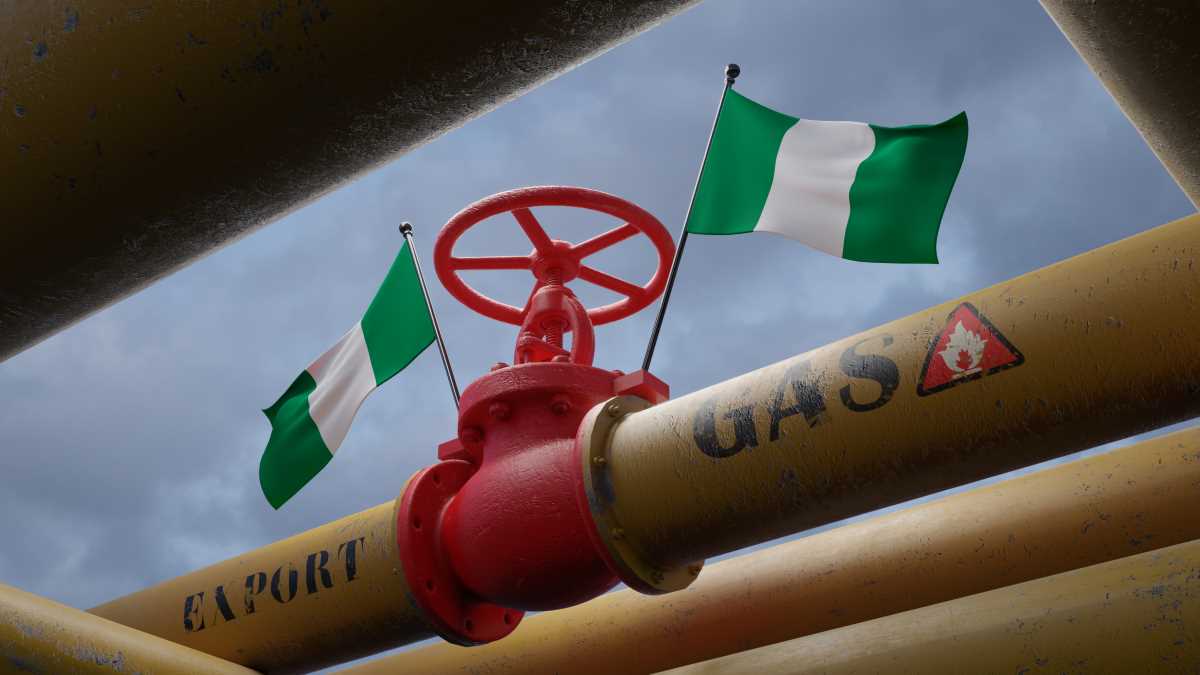Local content regulations and the implementation of the AfCFTA have triggered the creation of a highly competitive domestic hydrocarbons market within Africa’s second largest oil producer
JOHANNESBURG, South Africa, July 19, 2022/APO Group/ —
Nigeria represents one of the continent’s most mature oil and gas markets as well as the second largest oil producer in sub-Saharan Africa. The country’s energy achievements have largely been attributed to the participation of various international oil companies (IOC), including TotalEnergies, Shell, Eni, Chevron and ExxonMobil – who, according to Woomac, collectively have equity participation in over 110 oil mining licenses and are responsible for 45% of the country’s oil production – as well as the leadership of the state-owned Nigerian National Petroleum Corporation (NNPC). However, with IOC divestment from key hydrocarbon assets in light of the energy transition, Nigeria’s local companies have stepped up, driven by local content-oriented regulation and the implementation of the African Continental Free Trade Agreement (AfCFTA).
Market-Driven Policies Improve Domestic Participation
Nigeria represents a trendsetter within the African oil and gas space regarding the implementation of local content policies that aim to drive local company participation. In 2010, the government established the Nigerian Oil and Gas Industry Content Development (Local Content Act), a comprehensive framework to promote indigenous participation in the sector. Specifically, the Local Content Act prescribes minimum thresholds for the use of local products and services; the promotion of skills and technology transfer for the Nigerian labor force; ensures value addition and job creation; and the awarding of oil and gas contracts and undertakings to local companies. In this sense, the regulation has been instrumental in improving the role local companies play while creating a highly competitive domestic market in Nigeria. With a Bill for the amendment of the Act currently being deliberated – in which modifications include widening the definition of Nigerian companies and capacity compliance while revising minimum target levels for imported items – Nigeria is committed to significantly improving local content across the sector.
Meanwhile, representing a key driver of Nigeria’s domestic market, the implementation of the Petroleum Industry Act (PIA) in 2021 has further supported Nigeria’s domestic market. While the PIA comprises a complete overhaul of the oil and gas industry, commercializing the NNPC, introducing two regulatory agencies and ensuring increased transparency and accountability, the legislation focuses predominantly on revenue and natural resource management. Therefore, the Local Content Act remains imperative in the country and will continue to enhance the domestic sector.
Nigerian companies have been able to increase their penetration in regional markets, ensuring increased competitiveness across the regional market
Capitalizing on AfCFTA Opportunities
With an enabling environment in place to spur local company participation, the implementation of the AfCFTA in January 2021 only served to enhance the participation of Nigeria’s indigenous companies, creating new opportunities for intra-African trade and commerce. Specifically, the AfCFTA comprises the reduction of tariff and non-tariff barriers, the simplification of custom procedures and the elimination of red tape so as to create a single market for goods, persons and services. For Nigeria, the AfCFTA is particularly important, as it has improved regional supply networks, domestic job opportunities and capacity building across the regional oil and gas industry. Now, Nigerian companies can benefit from improved export opportunities, regional investment and access to new logistic and distribution supply chains. In this regard, Nigerian companies have been able to increase their penetration in regional markets, ensuring increased competitiveness across the regional market.
Nigerian Companies take the Lead
Backed by the PIA, the Local Content Act and the opportunities created by the AfCFTA, local companies across the entire energy value chain in Nigeria have significantly improved their participation in the sector. On the service company front, companies such as AOS Orwell, the largest indigenous oilfield services company in Nigeria; Tecon Oil Services, supplying a myriad of services to E&P companies in Nigeria’s upstream industry; and Century Energy Services Limited, one of the largest providers of Operations & Maintenance services in west Africa, have positioned themselves as key enablers of Nigeria’s oil and gas market growth.
Meanwhile, on the upstream side, companies such as the newly reformed NNPC and its subsidiary the Nigerian Petroleum Development Company; Amni International Petroleum Development Company, active in a variety of offshore basins across west Africa; Emerald Energy Resources, an independent oil company with a vision to seek and acquire profitable new reserves in Nigeria; Frontier Oil Corporation, a wholly owned Nigerian E&P company formed in 2001; South Atlantic Petroleum, a privately held Nigerian oil and gas E&P company with a portfolio of high-quality assets in west Africa; and Eroton E&P, an independent oil and gas producing company operating OML 18 in the Niger Delta, are driving Nigerian E&P activities. These companies are leading the country into a new era of domestic market growth while increasing the penetration of Nigerian companies in regional markets.
With Nigeria having partnered with the African Energy Chamber (AEC) for the 2022 edition of the continent’s premier energy event, African Energy Week (AEW) 2022 – taking place from October 18-21 in Cape Town and under the theme, ‘Exploring and Investing in Africa’s Energy Future while Driving an Enabling Environment’ – the country’s domestic market is set to make a strong case for investment and development in west Africa. By taking part in panel discussions, debates and networking functions, Nigerian companies will lead dialogue and decision-making regarding Africa’s energy future.
Distributed by APO Group on behalf of African Energy Chamber.
